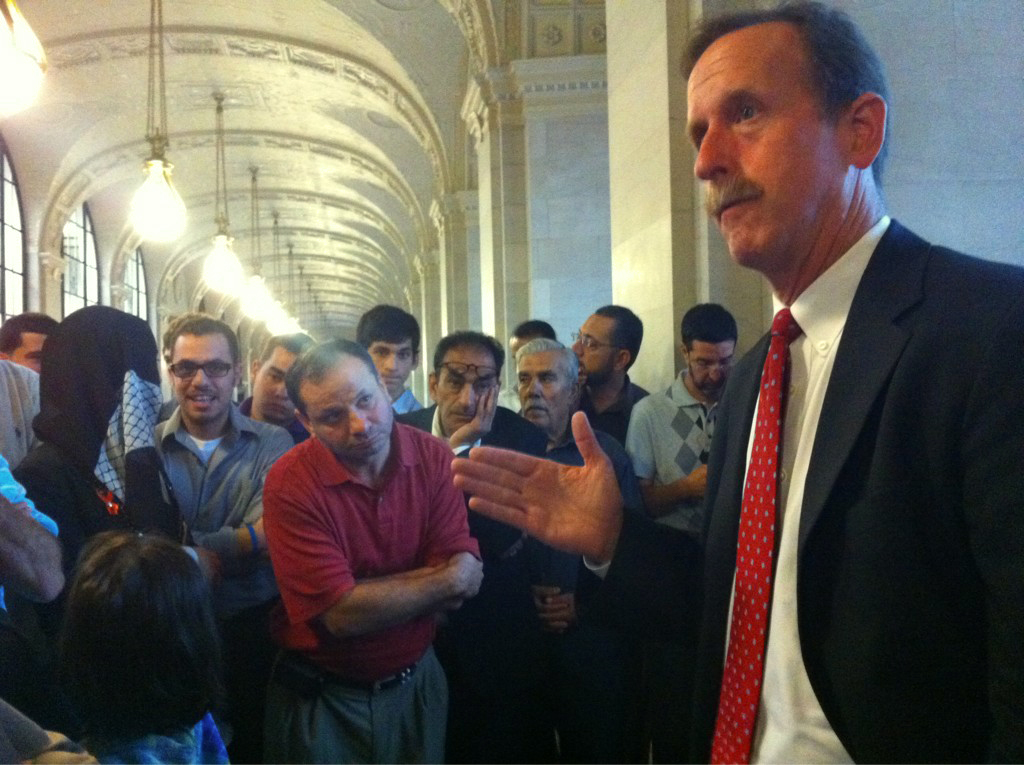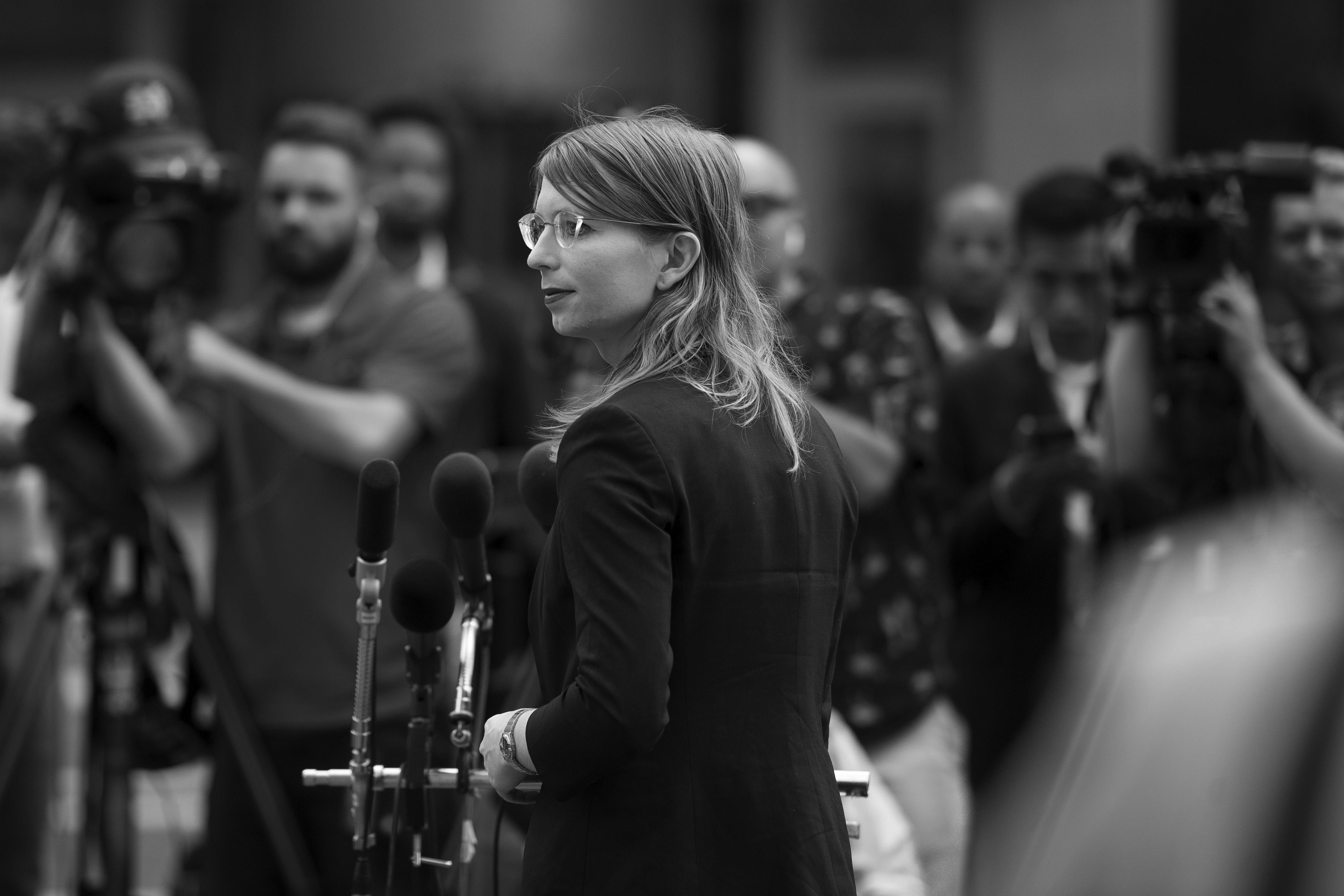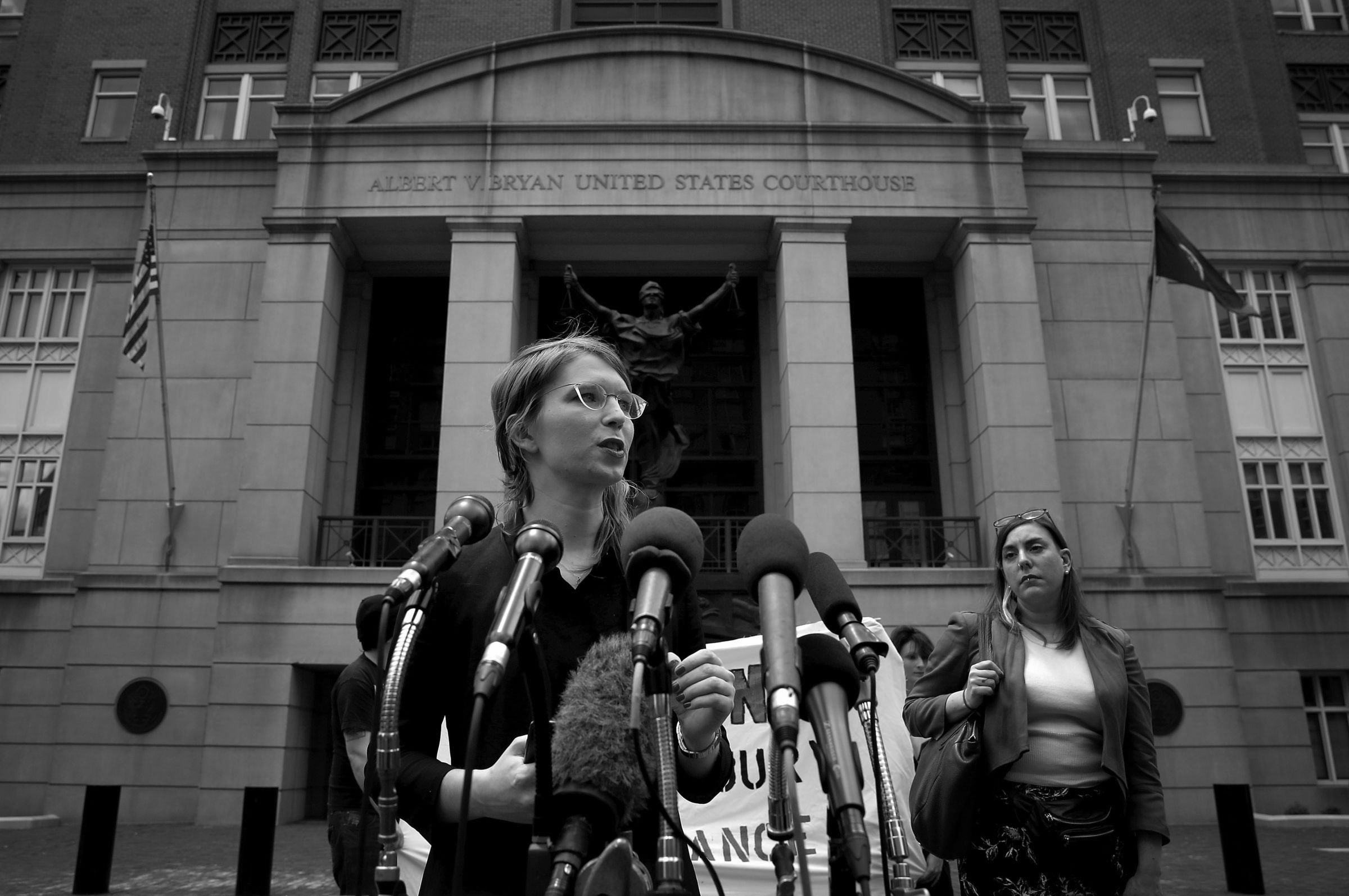As we approach the tenth anniversary of 9/11, and my father remains incarcerated in a modern-day internment camp, the time in which we live begins to feel less like 2011 and more like 1942. But this week could determine whether today’s justice system is capable of rewriting the sad chapters of our history. I say this week because on Thursday, the Fifth Circuit Court of Appeals will hear the long-awaited oral arguments in the Holy Land Foundation case, involving what was once our country’s largest Muslim charitable organization.
Meet my father, Ghassan Elashi. The co-founder of the HLF. Inmate number 29687-177, sentenced to 65 years in prison for his charity work in Palestine. He is an American citizen from Gaza City, who before his imprisonment, took part in the immigration rally in Downtown Dallas, joining the half a million people wearing white, chanting ¡Si, se puede! The prison walls have not hindered his voice, as he writes to me, heartbroken about the homes destroyed during the earthquake in Haiti, the young protesters killed indiscriminately in Syria, the children lost to the famine in Somalia. Most frequently, he writes to me about the Japanese-American internment.
Now meet Fred T. Korematsu, who after Peal Harbor was among the 120,000 Japanese-Americans ordered to live in internment camps. This was in 1942, when President Roosevelt signed Executive Order 9066, which authorized the military detainment of Japanese-Americans to ten concentration camps during World War II. Mr. Korematsu defied orders to be interned, because he viewed the forced removal as unconstitutional. So on May 30, 1942, Mr. Korematsu was arrested. His case was argued all the way to the Supreme Court, which ultimately ruled against him, stating that his jailing was justified due to military necessity.
Nearly forty years later, in 1983, Mr. Korematsu’s case was reopened, and on Nov. 10, 1983, the conviction was overturned. Judge Marilyn Hall Patel notably said, “It stands as a caution that, in times of international hostility and antagonisms, our institutions, legislative, executive and judicial, must be prepared to exercise their authority to protect all citizens from the petty fears and prejudices that are so easily aroused.”
Fast-forward six years. It’s already 1989, when my father co-finds the HLF, which becomes a prominent American Muslim charity that provides relief—through clothes, food, blankets and medicine—to Palestinians and other populations in desperate need. Then, in 1996, President Clinton signs the Anti-Terrorism and Effective Death Penalty Act, giving birth to the Material Support Statute, a law that in time would come under fire by civil libertarians for profiling and targeting Arab and Muslim Americans.
Two years later, in 1998, Clinton awards Mr. Korematsu with the Presidential Medal of Freedom, the highest citizen honor, condemning Mr. Korematsu’s persecution as a shameful moment in our history.Three years later, the towers fall. And President Bush declares a “War on Terror.”
The HLF case was tried in 2007, lasting three months, and after 19 days of deliberations, the jury deadlocked on most counts. The judge declared a mistrial and the case was tried the following year.In 2001, President Bush signs the Patriot Act, which strengthens the Material Support Statue. The law’s language is so vague that it gives prosecutors the authority to argue that humanitarian aid to designated terrorist organizations could be indirect, and therefore, a crime.
In my father’s case, he is charged with conspiring to give Material Support in the form of humanitarian aid to Palestinian distribution centers called zakat committees. Prosecutors admit the zakat committees on the indictment were not designated terrorist groups, but according to the indictment released in 2004, these zakat committees are “controlled by” or act “on behalf of” Hamas, which was designated in 1995. Their theory is that by providing charity to zakat committees, the HLF helped Hamas win the “hearts and minds” of the Palestinian people.
In 2008, after essentially the same arguments, the retrial ended with the jury returning all guilty verdicts, and in 2009, my father was sentenced to 65 years in prison, for essentially giving humanitarian aid to Palestinians.
In 2010, my father was transferred to a “Communications Management Unit” in Marion, Illinois—the aforementioned modern-day internment camp. The CMU received the nickname “Guantanamo North” by National Public Radio since two-thirds of its inmates are Middle Eastern or Muslim. The purpose of this prison—which has another branch in Terre Haute, Indiana—is to closely monitor inmates and limit their communications with their families, attorneys and the media. Thus, I only get to hear my father’s voice once every two weeks, for fifteen minutes. And our visitations take place behind an obtrusive Plexiglass wall.
My father and his co-defendants—now called the Holy Land Five—are in the final stages of the appeal as the oral arguments approach on Thursday. In the Fifth Circuit Court in New Orleans, defense attorneys will urge the panel of three justices to reverse the HLF convictions based on errors that took place in the trial process.
According to the appellate brief, there’s a major fact that undermines the prosecution’s claim that Hamas controlled the zakat committees: “The United States Agency for International Development—which had strict instructions not to deal with Hamas—provided funds over many years to zakat committees named in the indictment, including the Jenin, Nablus, and Qalqilia committees,” writes my father’s attorney, John Cline. He continues stating that in 2004, upon the release of the HLF indictment, “USAID provided $47,000 to the Qalqilia zakat committee.” Furthermore, defense attorneys will argue that the district court:
a) Violated the right to due process by allowing a key witness to testify without providing his real name, thereby abusing my father’s right to confront his witness. They are referring to an Israeli intelligence officer who became the first person in U.S. history permitted to testify as an expert witness using a pseudonym.
b) Abused its discretion by allowing “inflammatory evidence of little or no probative value,” which included multiple scenes of suicide bombings.
c) Deviated from the sentencing guidelines when they sentenced my father to 65 years.
When putting the lawyerly language aside, human rights attorneys have deemed the HLF case as purely political, perpetrated by the Bush administration. Likewise, the decision to intern Japanese-Americans was based on “race prejudice, war hysteria and failure of political leadership,” according to a 1982 report by the Commission on Wartime Relocation and Internment of Civilians.
I can only hope that my father’s vindication won’t take 40 years as it did for Mr. Korematsu. Let us learn from our old wrongs.
Noor Elashi is a writer based in New York City. She holds a Creative Writing MFA from The New School. This op-ed was inspired by a forward written by Karen Korematsu in the upcoming book, “Patriot Acts: Narratives of Post-9/11 Injustice,” which includes a chapter about Noor’s father. You can purchase a copy from McSweenys HERE
Echoes of Korematsu; The Holy Land Five Case by Noor Elashi was originally published on Counterpunch




